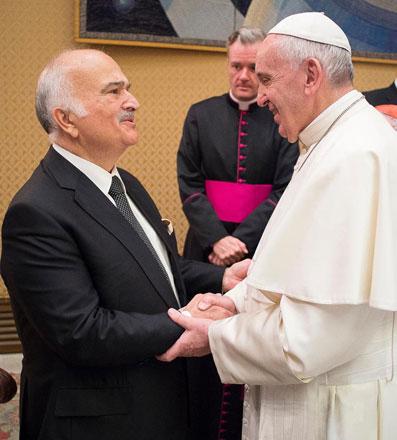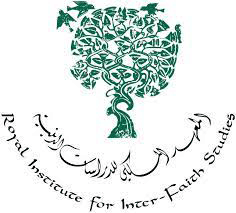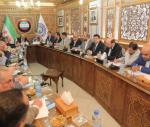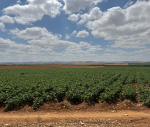You are here
Seminar on interfaith dialogue highlights common vision of Abrahamic religions
By Rula Samain - Sep 26,2017 - Last updated at Sep 28,2017
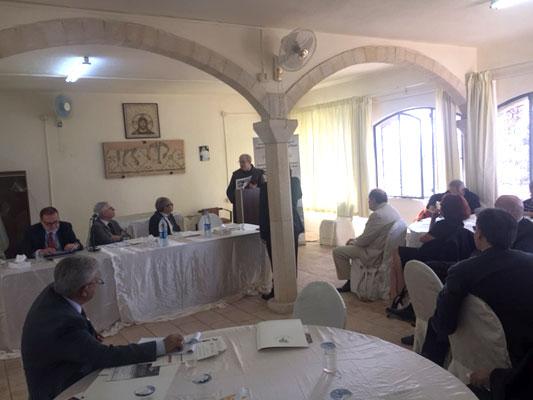
Participants are seen during the seminar ‘Prophet Moses In Judaism, Christianity, and Islam’ in Madaba on Monday (Photo by Rula Samain)
MADABA — Interreligious dialogue must be followed by action and inspire working together to shape a culture of peace and harmony, said officials during the seminar “Prophet Moses In Judaism, Christianity, and Islam” on Monday.
Held under the patronage of HRH Prince Hassan and Jan Figal, EU special envoy for the promotion of freedom of the religion or belief, the event was organised by the Royal Institute for Inter-Faith Studies (RIIFS), the EU delegation in Jordan, and the Italian embassy.
RIIFS is a non-governmental organisation that focuses on the inter-disciplinary study of inter-cultural and inter-religious issues with the aim of defusing tensions and promoting peace, both regionally and globally, according to its website.
Majeda Omar, RIIFS director, said that despite differences in the Abrahamic religions, pluralism is part of the divine plan.
“By holding this seminar, we want to show that genuine interfaith dialogue and trialogue has to be preceded by religious tolerance that acknowledges differences and celebrates our distinctive paths,” RIIFS’ director said.
She added that tolerance is the first step in paving the way towards mutual acceptance.
Omar said that the event’s timing was “crucial” as the region is engulfed in conflict and turmoil, highlighting the location of Mount Nebo as sending a “message of peace, mutual understanding, and respect of differences”.
In the paper he presented, Fr Francesco Patton, Custos of the Holy Land, said that the life of Prophet Moses represents a “model” of relationship with God, and of the will for goodness and freedom.
Fr Patton told the Jordan Times that the seminar aims to show that the life of Prophet Moses is an example that can unite and facilitate dialogue between the followers of the Abrahamic religions.
The two-day event, which concluded on Tuesday, was attended by a number of Muslim, Christian, and Jewish scholars.
Ahmad Hamzah, researcher at Al Azhar Observatory for Combating Extremism, said that there are no contradictions in the prophet’s story in both the Torah and the Koran, adding that, while the Torah gave the detailed story of the prophet and showed historical incidents, his life was also briefly mentioned in the Koran, focusing on the lessons learnt from his life.
Fr Peter Madros, priest at the patriarchate of Jerusalem, presented a paper titled “Moses in the Three Monotheististic Religions: Less Known Aspects” that discusses the interfaith dialogue that Jordan has represented since the 90s, the challenges religions faced because of atheism, and the differences in the prophet’s story in the three Abrahamic religions.
He told the Jordan Times that there is no contradiction between knowledge and harmonious living, but that contradiction arises with ignorance.
“The problems the West is facing today is because it has been denying religion, while our problems are because we have politicised it, allowing religion to have a bigger impact on our lives than it should have.”
Samer Azar, pastor of the Lutheran Church in Amman and Synod president of the Evangelical Church in Jordan and the Holy Land, told the Jordan times that the conference will reach its aim once it goes beyond the text, and said that it does not aim to reconcile the various stories of the Prophet Moses in the three monotheistic religions, but to see him as a unifying factor.
Related Articles
AMMAN — Human dignity must be the highest priority above all else, HRH Prince Hassan, the chairman of the Royal Institute for Inter-Faith St
AMMAN — The mission of the Royal Institute for Inter-Faith Studies (RIIFS) is to foster inter-religious and intercultural dialogue as an eff
AMMAN — Almost 50 young people from several local organisations celebrated the 2016 World Interfaith Harmony Week at an event on Monda


